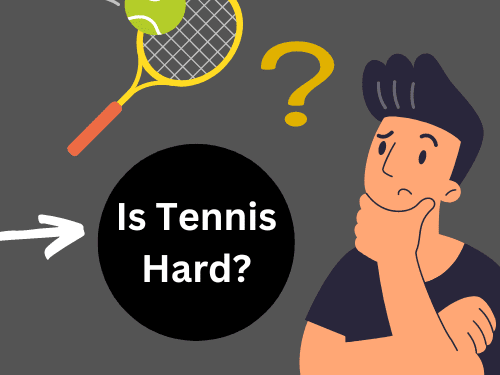Is Tennis Hard?
Yes, tennis can be considered a challenging sport. It requires physical fitness, coordination, agility, and mental focus. Tennis players must master serving, forehand and backhand strokes, volleys, and footwork. Additionally, they must develop strategic thinking and quick decision-making skills during matches. The competitive nature of tennis and the need for technical proficiency and physical endurance can make it a difficult sport to master. However, players can improve their skills and enjoy the game with practice, dedication, and proper coaching.
The Mental Challenge of Tennis
Playing tennis is not just about hitting the ball back and forth, it involves a high level of mental engagement and strategic thinking. Maintaining concentration and focus throughout a match is crucial, as one momentary lapse can result in losing a point or even the entire game.
Furthermore, tennis players must make split-second decisions under pressure, assessing the opponent’s shot and adjusting their positioning and stroke technique accordingly. This mental challenge adds an element of excitement and unpredictability to the game.
Handling frustration is another mental hurdle in tennis. It’s common to experience setbacks and errors during a match, and it takes mental fortitude to stay positive and maintain composure. Developing resilience and bouncing back from mistakes is essential to perform at your best on the court. The mental aspect of tennis can be both demanding and rewarding, as it teaches valuable life skills such as perseverance and emotional control.
Physical Demands of Tennis
Tennis is a physically demanding sport requiring agile, quick, and coordinated players. The constant movement and change of direction put a strain on the muscles, demanding excellent footwork and positioning.
Additionally, tennis matches can be lengthy, often lasting several hours, which requires a high level of endurance and stamina. Players must maintain their energy levels to sustain their performance throughout the game.
Power and strength are also important physical attributes in tennis. A strong serve, for example, can be a significant advantage, while generating power in groundstrokes allows players to hit winners and control the game’s pace. Regular training and conditioning are necessary to develop the physical capabilities required for tennis.
Technical Skills Required in Tennis
Tennis is a sport that involves intricate and precise movements, necessitating the mastery of various technical skills. Players must learn proper grip techniques to optimize their control and power. Different strokes, such as forehands, backhands, volleys, and serves, require specific methods to be honed through practice and repetition.
Footwork and positioning are crucial aspects of tennis, as players must quickly and efficiently move around the court to reach the ball. The ability to anticipate the opponent’s shots and adjust positioning accordingly is a valuable skill that enhances performance. Furthermore, understanding and implementing effective strategies and shot selection during matches can significantly impact the outcome.

Learning Curve in Tennis
For beginners, tennis can seem overwhelming due to its steep learning curve. Properly holding a racket, understanding the rules, and developing basic stroke techniques can take time and patience. However, progress can be made with the right guidance and consistent practice. It’s important to seek proper training and coaching to learn the fundamentals correctly, as it sets the foundation for further skill development.
As one continues to play and gain experience, the learning curve in tennis becomes less steep. The more you practice and compete, the better you become at handling the challenges of the sport.
It’s essential to embrace a growth mindset, viewing each setback as an opportunity for improvement. Tennis is a sport that rewards dedication and persistence, and the learning journey is an integral part of the overall experience.
Overcoming Difficulties in Tennis
Adopting a growth mindset is crucial to overcome the difficulties inherent in tennis. Embracing challenges and seeing them as opportunities for growth allows players to approach the game with enthusiasm and a desire to improve. Setting realistic goals and tracking progress can provide a sense of accomplishment and motivation.
Utilizing available resources and support systems is also beneficial. Seeking guidance from experienced coaches, watching professional matches, and engaging with fellow players can help expand knowledge and skill sets. Tennis communities provide opportunities for practice, friendly competition, and encouragement.

Conclusion
Tennis is undeniably challenging, requiring mental, physical, and technical abilities. The mental challenge involves concentration, decision-making, and managing frustration. Physically, players must possess agility, stamina, and power.
Developing proper grip, footwork, and strategic skills is crucial for success. While tennis may initially appear daunting, with dedication and a growth mindset, one can overcome the difficulties and find immense joy in the sport. The rewards of improved athleticism, personal growth, and the thrill of competition make tennis an incredibly satisfying and fulfilling endeavor.
FAQs
1. Is tennis suitable for all age groups?
Yes, tennis can be enjoyed by people of all age groups. Different formats and levels of play are ideal for various age ranges, making it a versatile sport for both young and old.
2. Can I play tennis if I’m not physically fit?
Absolutely! Tennis is a sport that can help improve your fitness level over time. Regular practice lets you start at your own pace and gradually build your stamina, agility, and strength.
3. How long does it take to become proficient in tennis?
The time required to become proficient in tennis varies depending on individual factors such as talent, dedication, and practice frequency. It can range from several months to a few years of consistent effort.
4. Do I need expensive equipment to play tennis?
While high-quality equipment can enhance your performance, enjoying the sport is not a requirement. Beginners can start with affordable rackets and gradually upgrade as their skills and commitment progress.
5. What are some strategies to improve my tennis skills?
Apart from regular practice, seeking guidance from experienced coaches, analyzing professional matches, and participating in training programs or tennis camps can be helpful. Additionally, watching instructional videos and studying tennis techniques can enhance skills.











